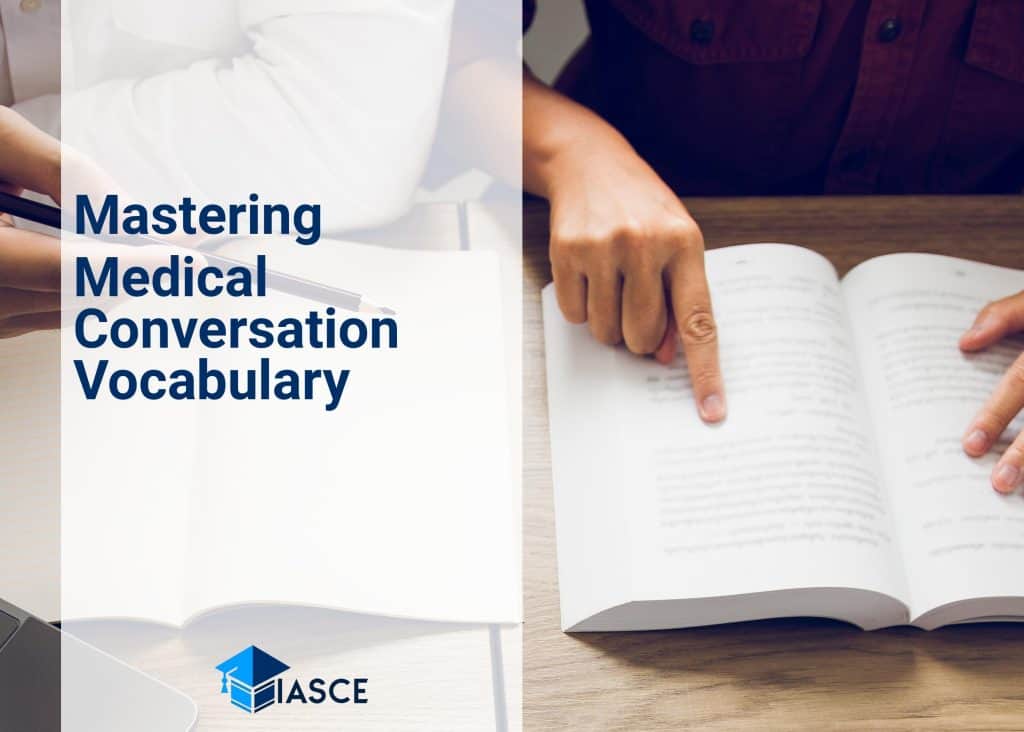I’ve spent countless hours diving into the complex world of health problems vocabulary. It’s a realm that can be daunting, but I’m here to guide you through it, making it accessible to everyone. Health literacy is crucial in our day-to-day lives, and understanding health-related terms is a significant part of this quest.
Often we’re left scouring the internet for meanings of medical jargon that doctors throw at us or that we come across while reading about health conditions. I believe that by mastering this vocabulary, we can play an active role in our healthcare decisions and discussions with physicians.
Intricacies of medical terminology may feel overwhelming initially but worry not! This comprehensive guide aims to simplify your journey towards mastering health problems vocabulary. Let’s embark on this knowledge-packed voyage together!
Defining Key Terms in Health Problems
Diving headfirst into the realm of health-related terminology, it’s essential to grasp a few key terms. Words like chronic, acute, diagnosis, and prognosis often pop up in discussions about health problems. Let’s break these down.
When we talk about chronic conditions, we’re addressing illnesses that persist for a long time or recur frequently. Think diabetes or arthritis. On the other hand, acute conditions are those that come on rapidly and need urgent care, such as a heart attack or appendicitis.
Now, onto diagnosis and prognosis – two terms people often confuse! A diagnosis is the identification of a specific disease through evaluation of symptoms and laboratory findings. For instance, if you’ve been feeling excessively tired lately and tests reveal high blood sugar levels, your doctor might diagnose you with diabetes.
A prognosis is different – it’s an estimate of how an illness will progress over time and its potential outcomes. If your doctor tells you that with proper management your diabetes should not significantly impact your lifestyle – that’s a prognosis.
Understanding these terms can empower us when navigating healthcare conversations. Here’s just one example:
|
Situation |
Term |
Use |
|---|---|---|
|
You’ve had joint pain for months |
Chronic |
“I have a chronic condition causing constant joint pain.” |
|
You suddenly experience severe chest pain |
Acute |
“I think I’m having an acute cardiac event.” |
|
After multiple tests, doctors find cancer cells in your body |
Diagnosis |
“The doctors diagnosed me with cancer.” |
|
Doctors predict you’ll fully recover after treatment |
Prognosis |
“The prognosis is good; they expect full recovery post-treatment.” |
In short, mastering this vocabulary gives us more control over our own health narratives. With knowledge comes power – let’s use this power wisely!
Applying Health Problems Vocabulary Contextually
Diving head first into the realm of health problems vocabulary, it’s essential to understand its practical application. This type of language isn’t just about memorizing terms; it’s about knowing how to use them contextually. Let me share some useful strategies with you.
First up, let’s tackle using these terms in a sentence. Say you’re discussing diabetes – instead of merely stating “Diabetes is a common health problem,” try utilizing your vocabulary more effectively: “Chronic conditions like diabetes require consistent monitoring and management.” See the difference?
Another strategy is incorporating synonyms for variety and depth. For instance, instead of repeating ‘pain,’ explore different words like discomfort, agony, or distress. Here’s an example:
-
Before: “He complained about severe pain after the surgery.”
-
After: “He expressed distress following the surgical procedure.”
It’s also crucial to grasp medical prefixes and suffixes as they can change a word’s meaning significantly. Consider ‘cardiomyopathy.’ Broken down, ‘cardio’ refers to heart, while ‘-myopathy’ implies disease or abnormality – together indicating a heart muscle disease.
Lastly, don’t shy away from asking questions when conversing with healthcare professionals. Familiarize yourself with phrases such as:
-
What are potential complications associated with this condition?
-
Could you explain what __ means?
-
Is there anything I should be concerned about regarding __?
These tips should help make mastering health problems vocabulary less daunting! Remember that practice is key – the more often you use these terms contextually, the easier they’ll become to recall and apply appropriately.
Conclusion: Acing Health Problem Terminology
I’ve journeyed with you through the vast landscape of health problem terminology. We’ve ventured into complex fields, navigating medical jargon and familiarizing ourselves with various terms and phrases. It’s not an easy task, but I hope this guide has made it a bit less daunting.
Now that we’re at the end of our exploration, let’s take a moment to reflect on what we’ve learned:
-
First off, understanding health vocabulary isn’t just about memorizing words; it involves appreciating their context and connotations as well.
-
Secondly, continual exposure is key to mastering these terms. You’ll find your grasp strengthening as you encounter these terms in different settings – be it reading medical articles or engaging in healthcare discussions.
-
Finally, remember that language is fluid and evolving. Even within the realm of health terminology, new words crop up all the time as science advances and human understanding deepens.
Here’s a quick summary for you:
| Key Takeaways |
| --------------- |
| Understand context & connotations |
| Practice through continual exposure |
| Keep up with evolving language |
In wrapping up this comprehensive guide, I’d like to remind us all why we undertook this endeavor in the first place. Acquiring knowledge isn’t an end unto itself – rather it equips us to better navigate our world. In learning about health problems vocabulary, you’re not merely adding words to your mental lexicon; you’re empowering yourself with clearer understanding when dealing with real-life health situations.
Mastering health problem terminology may seem like an uphill task now – but trust me when I say that every step taken will bring rewards down the line. Just keep going! As they say: Rome wasn’t built in a day – nor was any expert created overnight!
Let’s continue learning together and strive towards a healthier tomorrow!

